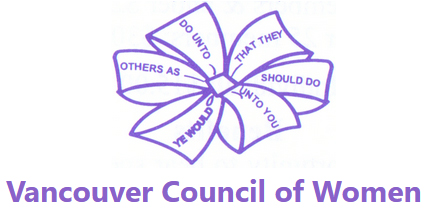By Sheila Pepper, Seniors, Housing and Safety Convenor
Our BC government is promising many more social housing builds of various forms in most parts of this province, but many are slow to be approved and funded, as so many other financial pressures are put on the province’s funds every month. Research shows that these promises are for future years, when so many need housing now, particularly our chronically homeless, new refugees, immigrants who have been waiting for weeks or months, as have asylum-seekers, all urgently needing accommodation. Others who must change residences are finding huge increases in costs of housing in all sizes of homes, due to the current lack of supply.
We heard from the CBC and at last month’s meeting, from Alison Silgardo, of the Seniors’ Services Society of BC, that there has been an increase of seniors over 60 who are homeless, and thus are less able to stay well and be safe in winter in particular. Many seniors are finding they must move to smaller homes for mobility and financial reasons, and they are finding many challenges in doing so. Hopefully, some other solutions can accommodate them, such as: house
sharing, co-operative combinations, laneway approvals for small homes. Many seniors are feeling more vulnerable to infections, and hospitals and most health care clinics are struggling to
help those who need their services. As we have experienced colder and severe weather conditions all over BC this January, many communities are struggling to keep roads, paths and highways clear of snow and flooding, and providing more warming shelters overnight, in churches and other community buildings.
Safety is always a concern for us all. It seems there are more ways to entice money from particularly vulnerable people. We see so many more ads recently for gaming and gambling, and more pressure put on everyone to join. Years ago, in Ottawa, we put pressure on our governments to stop gaming companies from putting gambling opportunities in retirement homes, resulting in peer pressure to increase participation. Gaming companies offered incentives to the owners, and many of these companies tried to increase gambling in many places, both online and at local stores. We must be more vigilant and learn all the new ways predators are trying to prey on vulnerable people.

